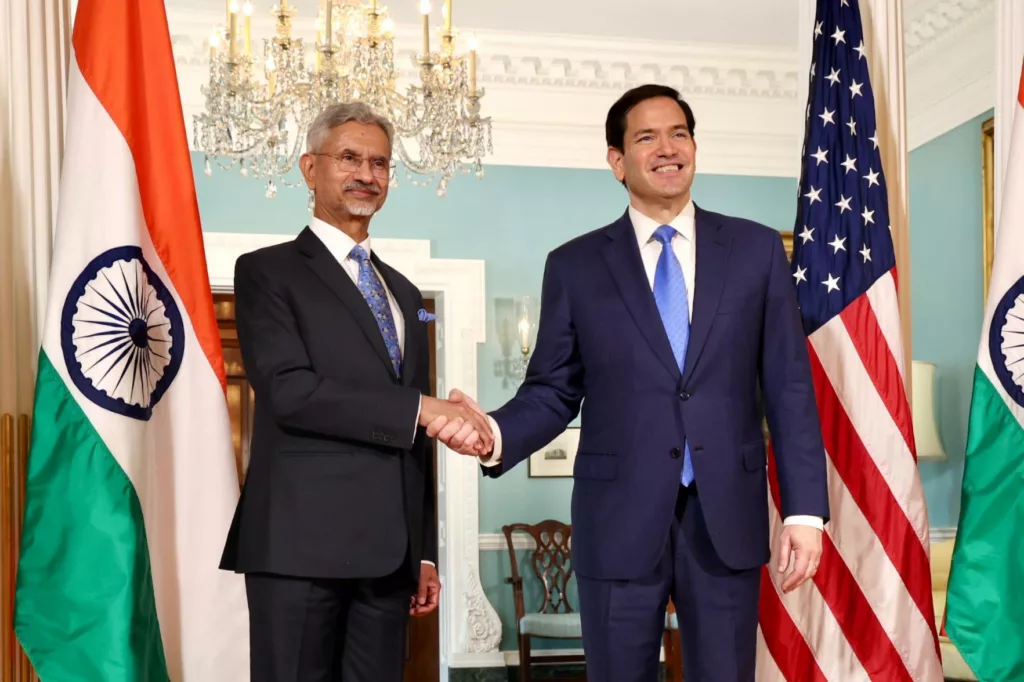The US-India COMPACT (Catalysing Opportunities for Military Partnership, Accelerated Commerce and Technology), a wide-ranging plan to improve cooperation between the two countries, was the main focus of a recent meeting between External Affairs Minister S. Jaishankar and US Secretary of State Marco Rubio.

The meeting took place in Washington after both leaders attended the Quad ministerial talks, which also included foreign ministers Penny Wong of Australia and Iwaya Takeshi of Japan.
According to the US State Department, Rubio spoke about the strong ties between Washington and New Delhi and stressed the importance of the COMPACT.
This programme aims to improve cooperation in areas like trade, defence, energy, tackling illegal immigration, fighting drug trafficking, and more. Jaishankar also said on social media that they discussed many issues such as trade, security, new technologies, energy, and global developments.
The US-India COMPACT was launched in February during Prime Minister Narendra Modi’s visit to Washington. The White House said the compact is meant to bring real changes in key areas and show the strong trust between the two countries.
One of the major goals of the compact is to create a ten-year plan to strengthen the defence partnership. Another target is called “Mission 500”, which aims to raise India-US trade to USD 500 billion by the year 2030. The compact also includes plans to work together in space research and artificial intelligence.
Jaishankar also met US Energy Secretary Chris Wright and spoke about India’s energy transition. They discussed how both countries can work together more closely in oil, gas, and civil nuclear energy.
A useful conversation with US @ENERGY @SecretaryWright in Washington DC this evening.
— Dr. S. Jaishankar (@DrSJaishankar) July 1, 2025
Spoke about the energy transformation underway in India. And opportunities for deeper India – US energy partnership.
🇮🇳 🇺🇸 pic.twitter.com/VcKBdafgXt
The aim is to produce more energy and reduce costs. Jaishankar also had separate meetings with his counterparts from Australia and Japan.


